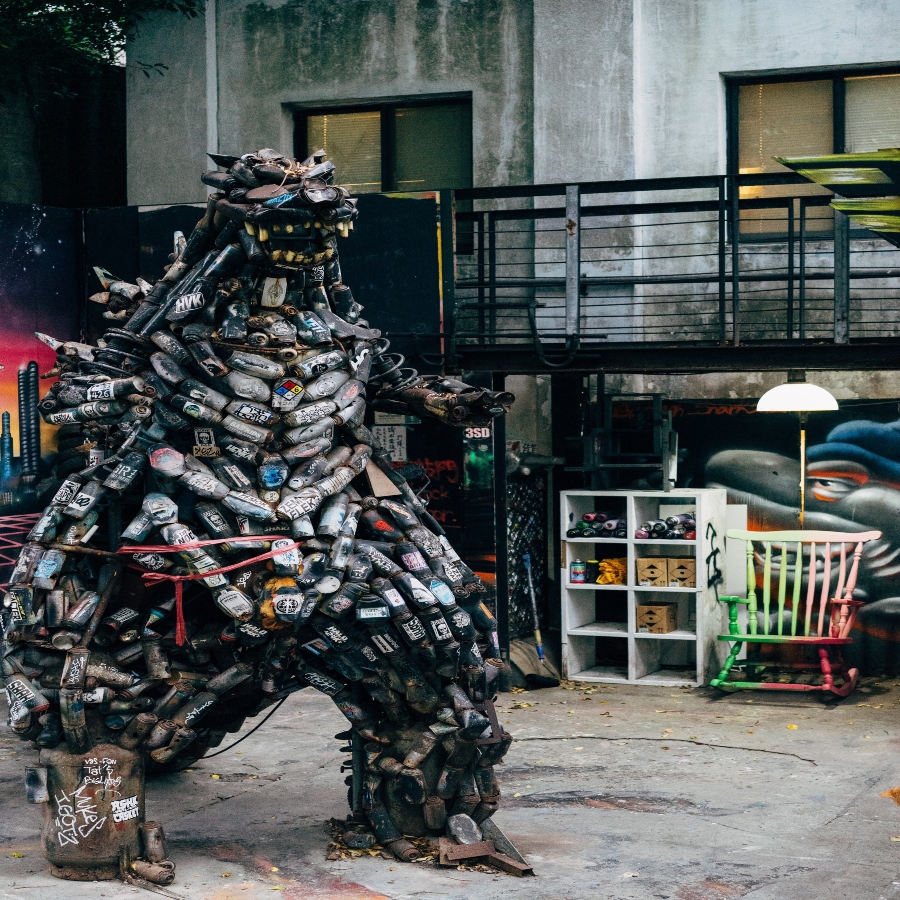Metaphors for a Tumor
Like a spaceship was flying through a meteor shower in her boy’s skull. Knock knock, he’d say, and when she answered who’s there, he’d giggle and say nothing; the spaceship had blown it all to smithereens.
Like a plane that’s flown too low and crop-dusted his brain with a spray of chemicals, and now the pests are dead, but the field is, too.
Like Godzilla, monstrous and radiated, rising from the fallout of war.
Like war to this doctor, a runty man who strutted down hallways swinging his Popeye arms. Who talked of battles and the good fight and the need to rally.
Like life was some kind of pep rally with pompoms and cheerleaders and a brass band playing up-tempo marches and no way you were allowed to die amidst all that rah-rah.
Like the fading notes of the last band, how she knew the parade was over when Dr. Popeye asked her to sit down, told her that it was time. Hours, days maybe, no one knows these things.
Like she was Godzilla, nuclear with fury. Like she could pick up the world and crush it to dust. Knock knock, who’s there? Nothing.
What You Wouldn’t Do
On slow nights at the bar, the employees would play a game they called What would you do for your kids? The waitresses between order ups, Connie from the kitchen, even Bev, the owner, after a martini or two when she wasn’t so frantic about things getting done. Come on, Bev, they’d say. And you could tell she liked it, liked being included. Almost like they liked her, like she was one of them when she wasn’t. She didn’t have kids, at least any they knew about, only the elderly husband who’d bought her the bar. Bev claimed she used to wait tables and tend bar on the side, but they didn’t believe her. No scars, no burns thickening her palms, no bones broken and grown back wrong because none of them had health insurance or enough money to fix it. But their kids? Charisse swore she’d walk through a fire, Millie would wrestle a grizzly, Bernice vowed she could lift a car off her kid. And Pattylee will think of them when she yanks up her pantyhose in the backseat of a customer’s car and palms the hundred-dollar bill that will pay for the medicine to keep her kid alive for another week, realize that they got the game all wrong because there is nothing, nothing you wouldn’t do.
Dust to Dust
When Pattylee chose cremation for her boy, her mother promised to say novenas for her soul that would surely burn in hell for all eternity. But Petey wanted to return to the world as ash, something that Pattylee plans to do when she’s good and ready. The lake, maybe, or the park where she pushed Petey on the swings. For now, she keeps him in a jar on the mantel, a flowered vase the funeral director handed to her. A little girlie, sure, but it looks good in the living room, and she likes being able to talk to him: About how her mother is driving her crazy or the wildfires out west. About how it’s just another July day here on earth, another day closer to extinction.

